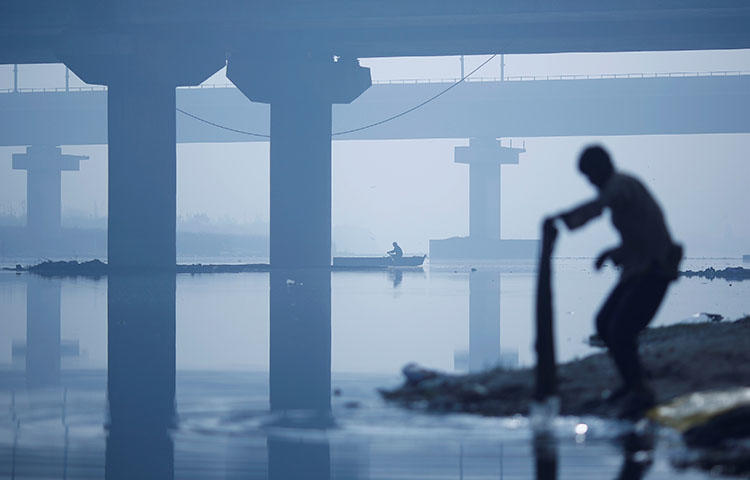New Delhi, April 26, 2018–Indian authorities must immediately conduct a swift and thorough investigation into threats against the investigative freelance journalist Rana Ayyub, the Committee to Protect Journalists said today. Ayyub began receiving an onslaught of anonymous, graphic threats via social media after a parody Twitter account on April 22 falsely stated that Ayyub was a defender of child rapists, according to a report by AltNews.in, a fact-checking website.
Both the tweet and the account were later deleted, the report added.
Among the attacks were exhortations to gang rape “if she didn’t stop talking against Hindus and [Prime Minister Narendra] Modi,” according to a statement by the Network of Women in Media, India. Ayyub’s address and personal phone number were also published on social media, the statement said.
Ayyub told CPJ that she received three-minute long pornographic videos of her face morphed onto “bodies of naked women” in her Facebook inbox and via Twitter on April 23. Soon after, trolls began writing to her on social media telling her to “leave journalism because prostitution is your cup of tea,” Ayyub said.
Ayyub, who is based in Mumbai and was in New Delhi when she received the videos, submitted a written complaint at the New Delhi Saket district police station.
“Police in New Delhi need to take the online attacks and threats against Rana Ayyub seriously and take swift action to protect her,” said Steven Butler, CPJ Asia program coordinator in Washington DC. “Unchecked, these threats of violence amount to an assault on freedom of speech, and create a chilling effect on the media.”
When contacted by CPJ for comment, Neeraj Kumar, the station house officer, confirmed that he met Ayyub. He said that New Delhi police are conducting a “preliminary inquiry” into her complaint and hung up the phone. Police have not filed a First Information Report, a police document filed at the start of an investigation in India.
Ayyub said she did not suspect any particular organization of backing the attacks, but said that many of the abusers promoted extreme right-wing Hindu views on their social media accounts.
Ayyub has previously investigated communal riots in Gujarat state that took place in 2002 when current Prime Minister Narendra Modi was Gujarat’s chief minister. In 2016, the journalist self-published a book, Gujarat Files: Anatomy of a Cover Up, which examined the role of government officials in the riots.
Since the book’s publication, Ayyub told CPJ she has been harassed by social media accounts that are described as supporters of Modi. “In the past, they’d troll me on the grounds of being a Muslim, being a woman and called me an ISIS supporter,” she said referring to the militant group Islamic State.
Modi’s government has frequently used religious divisions in Hindu-majority India for political gain, according to media reports.
Ayyub said she previously reported some of the accounts to Twitter but said nothing has been done to stop the harassment.
Twitter did not immediately respond to an email request for comment.
Journalists who have been critical of Modi’s Bharatiya Janata Party (BJP) and other right-wing political groups have often been targets of abuse, threats, and even murder, according to CPJ research. In September 2017, CPJ documented the murder of Gauri Lankesh, editor and publisher of Gauri Lankesh Patrike, a Kannada-language weekly tabloid known for its criticism of right-wing extremism.
